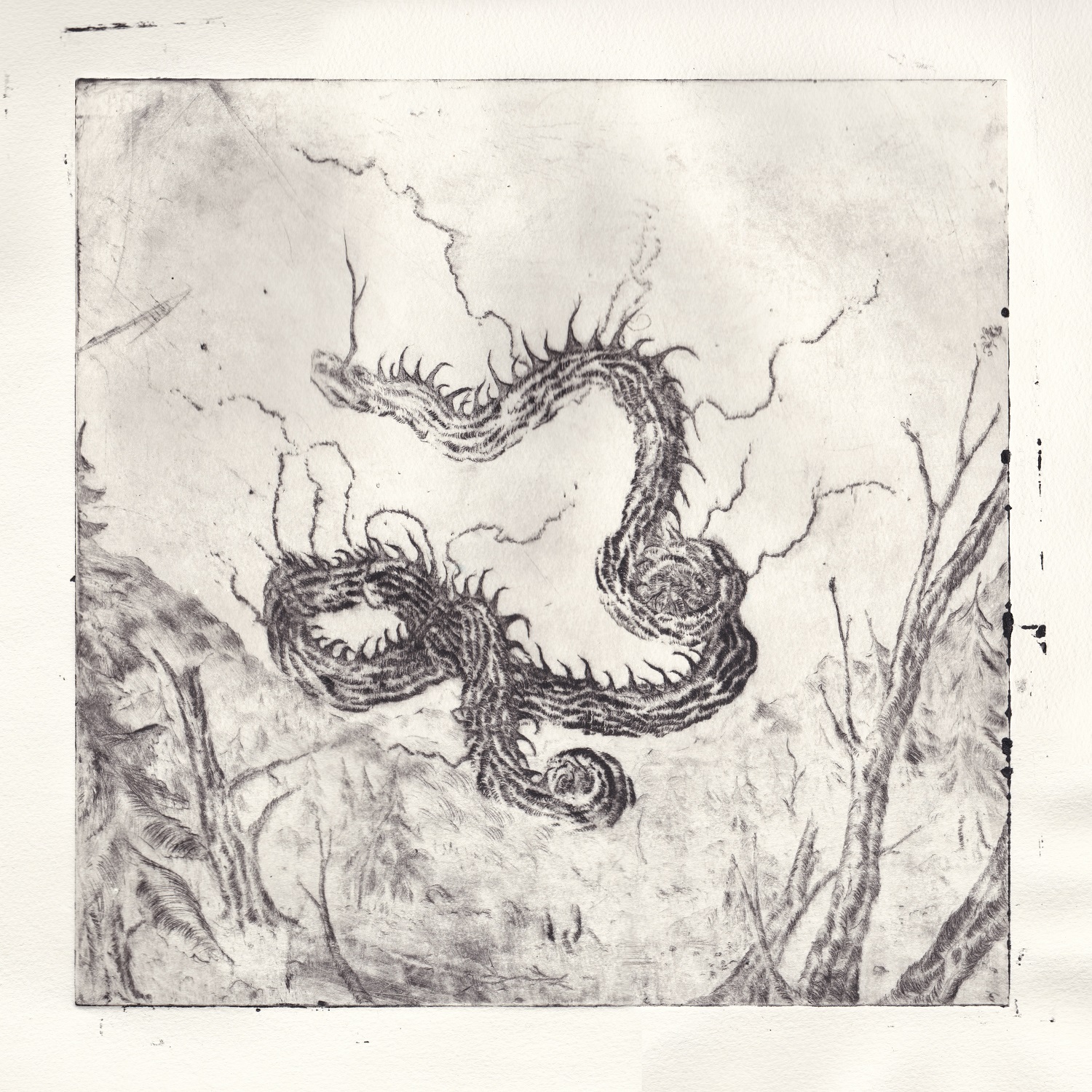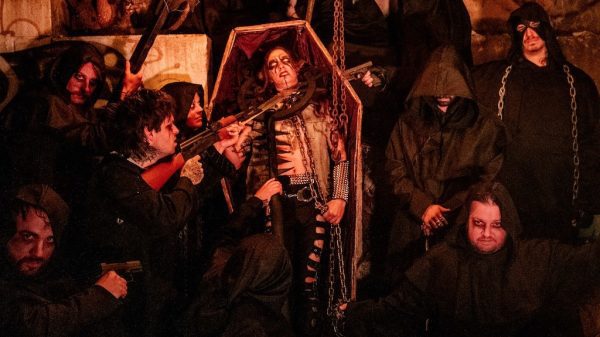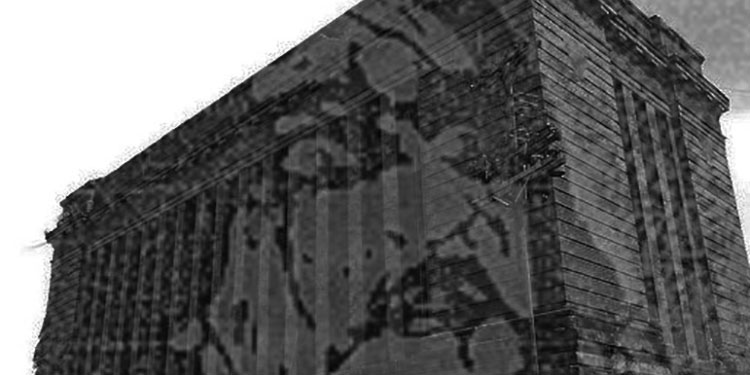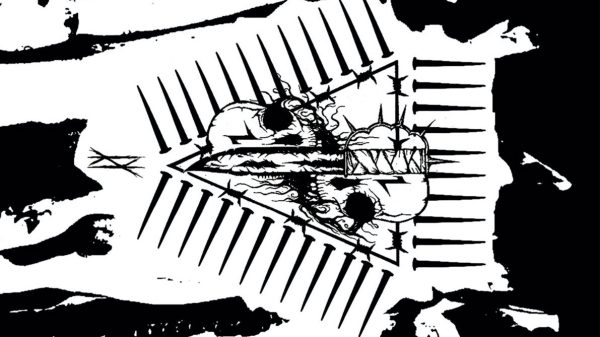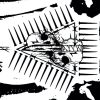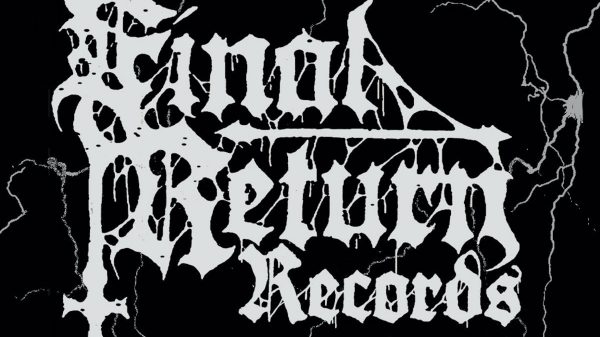Even though not a new addition to the Icelandic black metal scene, Nadra are just releasing their debut album, Allir Vegir Til Glötunar, loosely translated as All Paths to Oblivion. The band itself is formed by individuals that have participated in other great Icelandic black metal bands, including Carpe Noctem, Abacination, Dysthymia, Urhrak, Mannveira and Mispyrming.
The strongest point about Nadra’s music is their grasp on black metal and its roots. With the five tracks of this album, the band manages to navigate through the traditional black metal qualities in a variety of forms. Their approach can be direct and true to the origins of the genre at times, such as with “Falio,” where they take on a chaotic form, unleashing an imposing assault, something that is also revisited in the closing track of the album, “Fallid,” with its all-devouring characteristic becoming overwhelming within seconds, covering the world around you in darkness.
The album in most parts is dominated by Nadra’s raw approach. The opening track is an instance of this unforgiving, primal sound, as the drums are pushing the limits with their constant pummelling down. It even feels at times that there is a connection to the proto-black metal sound, with a touch of a punk-ish approach in terms of aggression and progression. That also leads to interesting moments of coordinated assaults, as is the case with the hybrid state of “Sar.” The band suddenly make a switch for a black/thrash sound, with the track spiralling out of control with its intensity.
However, Nadra do wander further out of the confinements of traditional, raw black metal. There are parts of “Falio” that sees them making use of a slower tempo, dropping to a doom-like state of existence, managing to create a much darker piece. What sprouts from this approach is an epic characteristic that the band makes use of in other areas of the album. “Sal” sees the band not rely so much on their speed but rather their imposing quality, reminiscent of the works of Bathory (of the Blood Fire Death era.) The co-existence of raw black metal and its epic counterpart are the centre of attention in “Fallid” raising the track to new heights. The band might go as far to spread into the folk category, with the use of slight diverse instrumentation at times, as well as some (though not many) ambient passages in order to bridge the progression of the album in a more suitable manner.
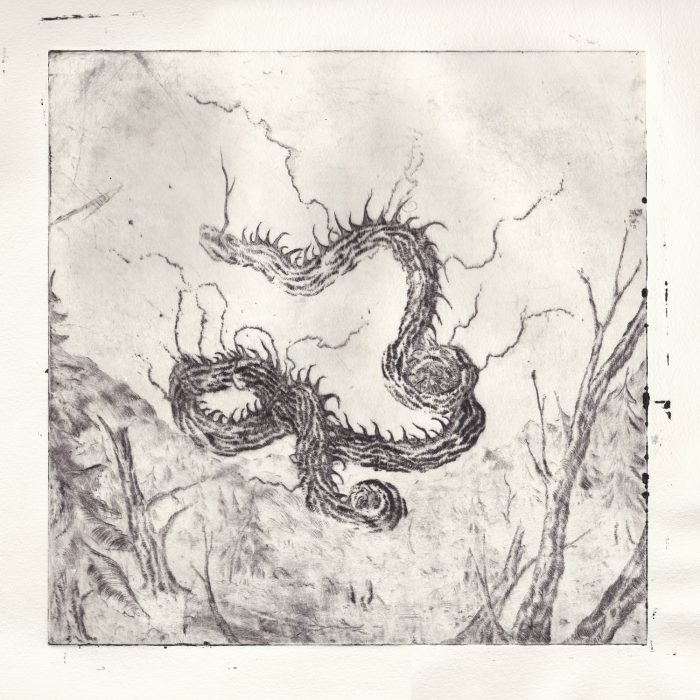
All of Nadra’s elements are bound together with their knowledge of black metal tradition. And on this journey, one of the aspects that aids them greatly is their incorporation of melodic parts in their song structures. Even though a big part of the album is rooted on aggression and dissonance, an equally big part is based on melody. Despite the raw opening of “Fjallid,” Nadra still throw additional melodies on top of the bitter foundation of the track, making the experience even more so exhilarating. That side of the band can be subtle, as is the case with the bits complementing the structure of “Sal,” but it can also take the spotlight, as happens with the guitar solos of both “Sal” and “Fallid.”
In Allir Vegir Til Glötunar, Nadra showcase their black metal-rooted attitude. Going through a variety of different modes they are able to produce a work that is able to encompass many different aspects of the genre. Through the bitter attacks to the melodic solos, and through the proto-black metal attitude to the epic side of the genre, they do not disappoint.

